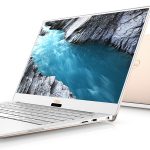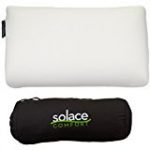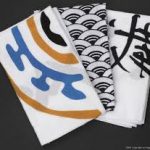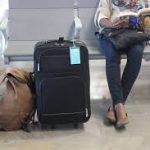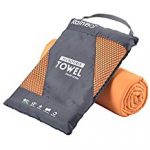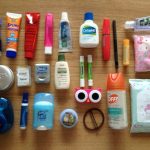Though the information in this online guide is geared specifically to Nakatani RIES U.S. Fellows, it may be useful for anyone preparing to travel to Japan.
Before You Go
Do Your Research
One of the most important things you can do to prior to departure is to spend some time learning more about Japan. There are a number of online sites that provide useful background information such as Japan Guide.com. There are also many interesting books on Japanese society, culture, history, and language that may also be of interest.
Students are strongly encouraged to purchase at least one guide book for Japan, Tokyo, or the city you will be in during your research internship as these will be highly useful to you during your time abroad.
US Department of State Resources
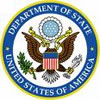 All participants are required to certify they have reviewed the US Department of State’s Country Specific Information on Japan which provides a wealth of useful information for travelers to Japan. Students should also carefully review the US Department of State Students Abroad website prior to departure. This site has been specifically developed to assist students preparing for international study, research, internship, work, volunteer, or travel.
All participants are required to certify they have reviewed the US Department of State’s Country Specific Information on Japan which provides a wealth of useful information for travelers to Japan. Students should also carefully review the US Department of State Students Abroad website prior to departure. This site has been specifically developed to assist students preparing for international study, research, internship, work, volunteer, or travel.
Passports & Visas
 Passports: All Nakatani RIES U.S. Fellows must obtain a U.S. passport that is valid for at least six months after the date of entry into Japan, or through November 15 of the program year. If you do not currently have a US passport you should apply for a passport as soon as possible. If your passport expires prior to November 15 of the program year you will need to renew your US passport as soon as possible. Typical processing time for a new or renewal passport application is between 4-6 weeks though expedited processing is available for an additional fee.
Passports: All Nakatani RIES U.S. Fellows must obtain a U.S. passport that is valid for at least six months after the date of entry into Japan, or through November 15 of the program year. If you do not currently have a US passport you should apply for a passport as soon as possible. If your passport expires prior to November 15 of the program year you will need to renew your US passport as soon as possible. Typical processing time for a new or renewal passport application is between 4-6 weeks though expedited processing is available for an additional fee.
Visas: US citizens do not require a visa to enter Japan for stays of up to 90 days. If you are a permanent resident you may need to apply for a visa if your home country is not one of the 61 countries that Japan has signed visa exemption agreements with. For a full list of countries with current visa exemption agreements with Japan please click here. The Nakatani RIES program will assist selected participants who require a visa to enter Japan with securing the necessary guarantor forms needed to apply for the visa. Students will be individually responsible for submitting your visa application to your nearest Japanese consulate or embassy and all visa application and related fees.
Embassy Registration
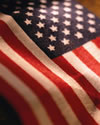 The Nakatani RIES Fellowship requires all students to register online with the U.S. Department of State’s Smart Traveler Enrollment Program (STEP) prior to departure or within two-days of arrival abroad. Registration with the Department of State makes your presence and whereabouts known in case it is necessary for a consular officer to contact you in an emergency. During a disaster overseas American consular officers can assist in evacuation were that to become necessary; but they cannot assist you if they do not know where you are. Registration is particularly important for those who plan to stay in a country longer than one month. When you register online, be sure to make a note of your login and password so that you can update your registration should your address or contact information change while you are abroad.
The Nakatani RIES Fellowship requires all students to register online with the U.S. Department of State’s Smart Traveler Enrollment Program (STEP) prior to departure or within two-days of arrival abroad. Registration with the Department of State makes your presence and whereabouts known in case it is necessary for a consular officer to contact you in an emergency. During a disaster overseas American consular officers can assist in evacuation were that to become necessary; but they cannot assist you if they do not know where you are. Registration is particularly important for those who plan to stay in a country longer than one month. When you register online, be sure to make a note of your login and password so that you can update your registration should your address or contact information change while you are abroad.
Official Transcript & Verification of Enrollment Letter
 Students selected as participants in the Nakatani RIES Fellowship may be asked to submit an official copy of your university transcript and will be required to submit a Verification of Enrollment letter from your home university Registrar Office confirming that you are currently enrolled as a degree-seeking student in good academic standing. This letter should indicate your current major and anticipated graduation date. Additional details will be provided to selected participants.
Students selected as participants in the Nakatani RIES Fellowship may be asked to submit an official copy of your university transcript and will be required to submit a Verification of Enrollment letter from your home university Registrar Office confirming that you are currently enrolled as a degree-seeking student in good academic standing. This letter should indicate your current major and anticipated graduation date. Additional details will be provided to selected participants.
Rice Summer School Enrollment
 All participants in the Nakatani RIES Fellowship will be required to enroll in the Rice University Summer School as a visiting undergraduate students and will receive 3 research credits for participation in the program. All tuition and enrollment fees are provided by the Nakatani Foundation but participants may be required to pay applicable application, immunization and documentation fees.
All participants in the Nakatani RIES Fellowship will be required to enroll in the Rice University Summer School as a visiting undergraduate students and will receive 3 research credits for participation in the program. All tuition and enrollment fees are provided by the Nakatani Foundation but participants may be required to pay applicable application, immunization and documentation fees.
Immunization Requirement: Students who are under the age of 22 are required by Rice University to provide proof of meningococcal vaccination or submit a waiver of vaccination. Click here for more information.
Students will receive a letter grade for participation in this program and completion of the research course. At the end of the summer, students will be able to request a transcript through the Rice University Registrar’s Office. Students will be graded on:
- Successful completion of all aspects of the Nakatani RIES Fellowship Program
- Submission of all required weekly internship reports and related assignments.
- Students are not graded on research project outcomes or results as these will vary greatly by student/project. Rather, students will be assessed based on their understanding of their research project, its possible implications for future research, and the professionalism and commitment to research they displayed.
Power of Attorney
 In the U.S., the right to take legal action on another person’s behalf is conferred using Power of Attorney. When abroad this is especially useful when it comes to things like financial aid disbursements or dealings with your financial/banking institution while you are out of the country. The Nakatani RIES Fellowship strongly encourages all participants to designate a parent, guardian or other trusted individual as their Power of Attorney for the duration of the time you are abroad in Japan. This can be done by completing a Limited Power of Attorney Form. This must be signed in front of a Notary Public to be a legally binding and official document. You should give the completed and notarized original document to your designated Power of Attorney and you should bring a photocopy of the signed document with you to Japan.
In the U.S., the right to take legal action on another person’s behalf is conferred using Power of Attorney. When abroad this is especially useful when it comes to things like financial aid disbursements or dealings with your financial/banking institution while you are out of the country. The Nakatani RIES Fellowship strongly encourages all participants to designate a parent, guardian or other trusted individual as their Power of Attorney for the duration of the time you are abroad in Japan. This can be done by completing a Limited Power of Attorney Form. This must be signed in front of a Notary Public to be a legally binding and official document. You should give the completed and notarized original document to your designated Power of Attorney and you should bring a photocopy of the signed document with you to Japan.
Notifying Bank & Credit Card Companies
 Whenever traveling abroad you should call the 1-800 number on the back of your ATM/Debit and/or credit cards prior to departure to notify them that you may be using your cards overseas and provide them with your travel dates. If you do not do this and try to use your card/s overseas they will likely not work as companies often flag international activity as possible fraudulent charges. We also recommend that you obtain the domestic phone numbers in Japan for your card companies so you do not have to pay international long-distance fees if you need to contact your card companies while you are in Japan.
Whenever traveling abroad you should call the 1-800 number on the back of your ATM/Debit and/or credit cards prior to departure to notify them that you may be using your cards overseas and provide them with your travel dates. If you do not do this and try to use your card/s overseas they will likely not work as companies often flag international activity as possible fraudulent charges. We also recommend that you obtain the domestic phone numbers in Japan for your card companies so you do not have to pay international long-distance fees if you need to contact your card companies while you are in Japan.
It is also helpful to confirm what your daily withdrawal limit is for your ATM/Debit card and the international ATM and currency conversion fees you will be charged for withdrawing money in Japan. The daily withdrawal limit is typically between $200 to $300 US dollars but many banks will temporarily raise your daily withdrawal limit if you are traveling overseas. If your daily limit is raised to $500 or $1,000 you will not have to withdraw money as often and won’t pay as much in fees.
International Health Insurance
 All Nakatani RIES Fellows are provided with overseas health, accident, illness, repatriation, and evacuation of remains coverage through a CISI insurance policy for the duration of their stay abroad. Participants will receive a CISI insurance card to carry with them in their wallet while in Japan and a detailed booklet outlining the coverage amounts provided. You can call the number on the back of this card at least 24 hours prior to your appointment to see if CISI can arrange for pre-payment of your medical care. However, if you are experiencing a medical emergency or CISI cannot arrange for pre-payment you will need to pay all medical costs up-front individually and then you will need to file a claim for reimbursement directly with CISI.
All Nakatani RIES Fellows are provided with overseas health, accident, illness, repatriation, and evacuation of remains coverage through a CISI insurance policy for the duration of their stay abroad. Participants will receive a CISI insurance card to carry with them in their wallet while in Japan and a detailed booklet outlining the coverage amounts provided. You can call the number on the back of this card at least 24 hours prior to your appointment to see if CISI can arrange for pre-payment of your medical care. However, if you are experiencing a medical emergency or CISI cannot arrange for pre-payment you will need to pay all medical costs up-front individually and then you will need to file a claim for reimbursement directly with CISI.
International SOS Coverage
All Nakatani RIES U.S. Fellows will be covered by Rice University existing Global Assistance Program through International SOS.
International Student ID Card (ISIC)
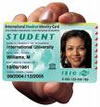 While not required, Nakatani RIES Fellows may also want to apply for an ISIC card, though this is not required. ISIC is the only internationally accepted student ID card and proof of current student status in existence. These cards provide a range of benefits and services worldwide including discounts to more than 33,000 locations in 103 countries, supplemental travel and lost baggage insurance, and a 24-hour emergency help line. With your ISIC card you can also access student-only travel discounts on airfare and train travel abroad. The ISIC card will be valid for one year and costs just $22. It can be obtained from the ISIC website or at most university study abroad offices. You can also search the ISIC website for the specific discounts and benefits available with this card in Japan.
While not required, Nakatani RIES Fellows may also want to apply for an ISIC card, though this is not required. ISIC is the only internationally accepted student ID card and proof of current student status in existence. These cards provide a range of benefits and services worldwide including discounts to more than 33,000 locations in 103 countries, supplemental travel and lost baggage insurance, and a 24-hour emergency help line. With your ISIC card you can also access student-only travel discounts on airfare and train travel abroad. The ISIC card will be valid for one year and costs just $22. It can be obtained from the ISIC website or at most university study abroad offices. You can also search the ISIC website for the specific discounts and benefits available with this card in Japan.
Students with Disability-based Needs
The Nakatani RIES Fellowship and Rice University are committed to equality of opportunity for persons with disabilities and to compliance with the Americans with Disabilities Act as well as Section 504 of the Rehabilitation Act of 1973. The university strives to make international programs accessible to individuals with disabilities.
We encourage all participants to talk with the Nakatani RIES program prior to departure about your needs and expectations so that we can advise you on what accommodations you can or cannot expect in Japan and at your research internship site. You should also review the Medical & Health Resources in Japan page of our website as some medication that is commonly prescribed in the U.S. is illegal to bring into Japan.
Mobility International USA, an organization dedicated to empowering people with disabilities around the world to achieve their human rights through international exchange and international development, maintains a wide range of useful resources for students considering studying abroad. MIUSA considers Japan to be a somewhat accessible country for people with disabilities. The Disabled Persons’ Fundamental Law provides protections to ensure the full participation of people with disabilities socially, culturally, economically and in other aspects of life. Many public places in the larger cities, including major museums, airport, subways and elevators feature Japanese Braille signage and tactile paths on most sidewalks. There are typically elevators or escalators at subway or train stations though these are often only located at one specific entrance or exit of the station. There are station maps that show where the elevators or escalators are located and staffed Information Desks where you can ask for assistance if needed. They maintain a range of resource information for Americans Going Abroad and you can search their website for country-specific information on Japan.
- Accesbile Japan
- JNTO: For the Disabled Traveler
- Accommodating Disabilities: But Only Within Reason (Japan Times)
- How Japan Views Disability (Odyssey)
- Standing Out as a Disabled Foreigner in Japan (BBC)
- ‘Otherness’ in Japan: Views of Disability and Difference (Fulbright)
- Hidden No More: What Happens with the Intellectually Disabled Join Japanese Society (Tofugu)
- Long Road to Disability Rights in Japan (Nippon.com)
Pre-Departure Medical Check & Immunizations
 All Nakatani RIES Fellows are required to schedule a Pre-Departure Medical Check with their medical doctor and should also visit their dentist, eye doctor, and/or any mental health-care professional or counselors you routinely see at least one month prior to departure. Be sure to obtain updated written prescriptions for all medications, glasses, or contacts. Review the CDC Travel Website for Japan with your doctor or healthcare professional and be sure to discuss how participation in this program might impact your personal health situation.
All Nakatani RIES Fellows are required to schedule a Pre-Departure Medical Check with their medical doctor and should also visit their dentist, eye doctor, and/or any mental health-care professional or counselors you routinely see at least one month prior to departure. Be sure to obtain updated written prescriptions for all medications, glasses, or contacts. Review the CDC Travel Website for Japan with your doctor or healthcare professional and be sure to discuss how participation in this program might impact your personal health situation.
While no immunizations are required for entry into Japan, you should ensure that all basic immunizations are up to date. If you are under 22 you will need to show Proof of Meningococcal Vaccination Record or Waiver, as part of your enrollment in the Rice University Summer School. Some immunizations must be given 4 – 8 weeks prior to departure for them to be effective so schedule these appointments as soon as possible. You university student health center should be able to tell you if there are any discount travel immunization clinics available in your local area.
There are certain medications that are commonly prescribed in the U.S. that are illegal to bring into Japan. If you take any prescription medication please see the Medical and Health Resources in Japan page for more information.
What to Pack
Currently, most airlines allow up to 2 checked bags for flights to/from Japan but baggage regulations can change at any time. Fellows will be advised what the current baggage regulations are for the airline we will use to fly to/from Japan after selection into the program. However, remember, you will also be bound by the baggage regulations for your domestic carrier for your flight to/from Houston which typically limits you to just one-checked back. We strongly recommend you bring just one large piece of checked luggage and pack an empty duffel bag to use as your second piece of checked luggage for your gifts/souvenirs on your way back to the U.S.
Try to pack just enough for a 3 to 4-week trip as you will have access to laundry facilities during both the orientation program in Tokyo and the research internship period. Each Nakatani RIES Fellow will be assigned an alumni mentor, typically the student who did research at your lab the previous summer, and you can also speak with them to see if they have more specific tips or recommendations for your particular location in Japan as weather can vary widely depending on region.
Be aware that pillows in Japan may be smaller/flatter that what you are accustomed to and may be buckwheat pillows. These are nice and cool to sleep on in the summer, but if you are a side sleeper they may not have as much support as you would like. It may be helpful to bring a small, firm, travel/camping pillow with you that you can use in addition to any pillow provided at the hotel or your internship housing. Check out Amazon for a wide array of possibilities. The neck roll options might be good for the plane/train rides but the flat pillow options might be better for sleeping.
What to Bring in Carry-on Bag
Passport & Other Important Documents
Don’t forget to hand-carry your passport with you on the international flight! You will need to scan your passport to check-in for the international flight and who at immigration/customs upon arrival in Japan. Also be sure to bring printed copies of your CISI Health & Liability Insurance, Written ER Contact Numbers for Family/Friends in the U.S., Photocopies of the front and back of all credit/debit cards you will bring with to Japan, flight itinerary, housing information in Japan, and other similar documents.
You should plan to bring a laptop with you to Japan as most host labs do not have spare/extra computers that you can use while at the lab. You will also need a laptop to write/submit your weekly report and prepare your final presentations and poster. Carry all valuable electronics in your carry-on bag and bring sure to pack your charging cords and extra batteries/memory cards as needed.
Laptop vs. Tablet: You will need a laptop as a tablet will not have sufficient computing power or the programs you will need to use for data analysis and to create your poster. If you will be doing computation or simulation-based research, email your host professor and/or mentor/s to ask if they have any advice regarding the type/power of the laptop you bring with you to Japan.
Software: Be sure your laptop has Microsoft Word and Powerpoint installed as you will use these extensively while in Japan. If, you have access, try to install an Adobe software that lets you convert files to PDF or find a good PDF converter online that you feel comfortable using. Since you all now have a Rice NetID and Password, you can also download/purchase any of the free and discounted software that is available to Rice students through the IT department.
Data Storage – Back up Your Data!: Be prepared, laptops and hard drives can and do fail. This has happened to one student each in our 2016 and 2017 programs. Or, you may damage/break your computer or lose it (past students have also had bad luck drinking coffee/tea/water near their computers too). Have a back-up plan in place so you don’t lose important research data/reports/posters or photos or other documents on the laptop you bring with you to Japan. See the section on Data Storage on our Doing Research page.
Voltage and Plug Adapters: You will likely not need a voltage converter for Japan, but may need a three-program to two-prong plug adapter. See Electricity in Japan for more information.
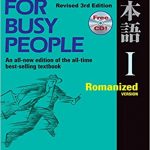 Japanese Language Textbooks, Workbooks, Notebook, Pen and/or Pencils
Japanese Language Textbooks, Workbooks, Notebook, Pen and/or Pencils
You will need a black or blue ink pen on the plane to fill out immigration/customs forms and will need to have your language books and notebook available and ready to use Monday morning. It is best to carry these on just in case your checked luggage is lost/delayed.
 Sweater/Jacket/Shawl and Warm Socks/Slippers and Eye Mask
Sweater/Jacket/Shawl and Warm Socks/Slippers and Eye Mask
It will likely be very cold on the plane. Wear comfortable clothes and layers that you can easily take on/off. Warm socks/slippers are helpful so you can untie/take off your shoes and be more comfortable on the long flight. An eye mask may help you sleep. If your feet tend to swell, it may also be helpful to wear a pair of compression socks on the plane.
There are many different types of travel pillows, but a small, rectangular memory foam pillow may be most useful for the summer. Pillows in Japan tend to be quite flat and, in the summer, may be made of buckwheat hulls. These are very cool but, particularly if you are a side sleeper, may not give enough support. If you bring a small, rectangular travel pillow to use on the plane you can also use this at the hotels and your dormitory in Japan to ensure you get a good night’s rest. The U-shaped neck pillows may also work and the inflatable ones will be easier to pack/travel with but some students prefer the rectangular shape for long-term use. We do not recommend bringing a full-sized pillow as that may be too big/bulky to travel with all summer.
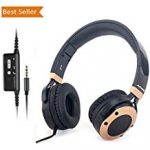 Noise Cancelling Headphones/Ear Buds
Noise Cancelling Headphones/Ear Buds
It can be helpful to have a good, portable/foldable pair of noise cancelling headphones to use both when traveling (there will likely be small children or babies crying on the flight) and while you are in Japan. Keep in mind that if you have a wireless pair, these may not work with the in-seat flight entertainment. Since you will likely need to Skype with your family/friends back home and your U.S. co-advisor, if you have a pair of headphones with a built in microphone that would be even better. Wall of apartments/dormitories/hotels in Japan can also be quite thin so if you listen to music or talk on the phone in your room, we recommend using headphones so you don’t disturb your neighbors.
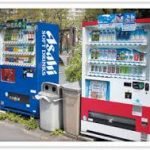 Empty Water Bottle for Flight and/or Reusable Tea Thermos
Empty Water Bottle for Flight and/or Reusable Tea Thermos
For the long plane right we do recommend you bring an empty plastic bottle in your carry-on bag. Once you are checked in and past security, simply fill it up at the airport water fountain and then you have water with you on the plane. It is very important to stay well hydrated on the long international flight so drink plenty of water and try not to consume caffeinated drinks, salty foods, or alcoholic beverages as these are all very de-hydrating. If you do bring a reusable water bottle, bring a small/travel size one so you can more easily carry it around in Japan.
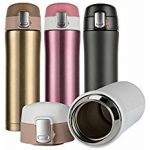 While American students often carry reusable water bottles on a daily basis in the U.S., in Japan these might not be so helpful. There are very few public water fountains in Japan and it can be difficult to fill up a large water bottle in the small sinks found in most bathrooms. Instead, Japan is the country with the highest density of vending machines in the world and a konbini (convenience store) on every corner. This makes it very easy (and inexpensive) to buy cold bottles of water at any time. Recycling in Japan is also mandatory so all plastic waste is sorted into its proper category if you put it in the correct trash bin outside most convenience store or near many vending machines. It may be more helpful to bring a reusable tea thermos as most offices/labs in Japan will have a hot water kettle that you can fill up with hot water as needed. You will see these much more often in Japan than reusable water bottles.
While American students often carry reusable water bottles on a daily basis in the U.S., in Japan these might not be so helpful. There are very few public water fountains in Japan and it can be difficult to fill up a large water bottle in the small sinks found in most bathrooms. Instead, Japan is the country with the highest density of vending machines in the world and a konbini (convenience store) on every corner. This makes it very easy (and inexpensive) to buy cold bottles of water at any time. Recycling in Japan is also mandatory so all plastic waste is sorted into its proper category if you put it in the correct trash bin outside most convenience store or near many vending machines. It may be more helpful to bring a reusable tea thermos as most offices/labs in Japan will have a hot water kettle that you can fill up with hot water as needed. You will see these much more often in Japan than reusable water bottles.
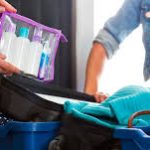 Change of Clothes and Small Toiletries
Change of Clothes and Small Toiletries
When traveling on long international flights, it can be helpful to bring one change of clothes and some basic toiletries in your carry-on bag. This way, if your checked luggage is lost or delayed you have something to wear to your language class first thing on Monday morning. Also, after a 12 -13 hour flight, you might want to brush your teeth, wash your face, and comb your hair. Your seat mate might appreciate that too! Just be sure that whatever you carry-on the plane complies with the TSA Liquids Rules.
- Toothbrush/Toothpaste/Floss
- Facial Wipes
- Foldable Brush
- Small Lotion/Moisturizing Cream
 Snacks – But No Fresh Fruit or Meat/Dairy Products
Snacks – But No Fresh Fruit or Meat/Dairy Products
You will be served meals on the international flight but the quality of airplane food often leaves a little (well actually a lot) to be desired. It can be helpful to bring a few snacks with you on the plane to eat during the long flight. Good options include trail mix, snack bars, and other types of snacks that travel well. You cannot bring fresh fruit, meat (including beef jerky), or dairy products into Japan due to agricultural/customs rules. You can be fined if you bring fresh fruit into Japan or (when flying back to Houston at the end of the summer) if you bring fresh fruit or other prohibited items back into the U.S. If you bring any of these items with you on the plane you must eat/drink them before de-planning/arrival abroad. Also, remember that while yogurt is a good snack you cannot take this trough security screening. You must buy yogurt at the airport after clearing security if you want to bring this with you on the plane.
What to Bring in Your Purse/Back-Pack on Daily Basis in Japan
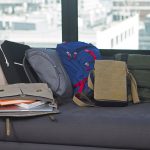 What Type of Bag for Day-to-Day Use in Japan?
What Type of Bag for Day-to-Day Use in Japan?
You will be walking a lot in Japan. It will also be very, very hot/humid and rainy during the summer. For this reason, you may not want to carry a large/heavy back-pack for your day-to-day bag in Japan. However, you need a light-weight bag that is large enough to carry your language books/notebook during the orientation and (likely) your laptop to/from your research lab during the internship period. What ever bag you bring, pick one that is comfortable and not too large (so you don’t weigh it down with too much stuff) and that has some water repellent/protectant as it will likely get wet/sweaty. For more tips on what to bring in your day bag see What’s in a Japanese Women’s Purse (some of these tips apply to men too).
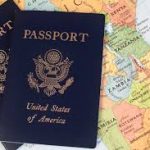 Passport, Health Insurance Card, and Emergency Wallet Card
Passport, Health Insurance Card, and Emergency Wallet Card
As a visitor to Japan, your passport is your only legal form of ID in Japan and you are legally required to carry it on you at all times. Police in Japan can, and sometimes do, ask foreigners to show them their passport to verify your legal status in Japan. This doesn’t happen often, but if it does happen to you and you don’t have your passport with you it could be a bit of a hassle. At the very minimum, you should carry a printed copy of the photograph page of your passport with you at all times. Be sure you have a safe place to keep your passport, such a wallet large enough to hold your passport or a designated pocket in your purse/backpack where your passport always goes. This way you are less likely to lose/misplace your passport. Most students do not find/use a passport belt useful while in Japan as these are uncomfortable to use on a daily basis and the likelihood of your money/passport being stolen in Japan is low – though you should always be cautious with important documents and cash.
You must also carry a printed copy of your CISI international insurance card and the printed copy of the Emergency Contact Wallet card you were given at Rice during the Pre-Departure Orientation.
 Wallet for Bill/Cash Coin/Change Purse
Wallet for Bill/Cash Coin/Change Purse
Since Japan is a cash-based society, you will need to have a wallet large enough to keep your yen in. You will receive a lot of coins while in Japan including 1¥ and 5¥ coins (not very useful) and highly useful/powerful 10¥, 50¥, 100¥, and 500¥ coins. Since Japan is primarily a cash-based society you will need a good wallet and coin/change purse to use for your cash. You can buy these as any 100¥ (Dollar Store) and they make a nice souvenir. So if you don’t have a coin/change purse already, be sure to visit a 100¥ during your first few days in Japan and buy one to use this summer.
What to Pack in Your Checked Suitcase
Consult Google-sensei for lots of great tips on packing light including this article on packing light for studying abroad. This article on 7 Things You Should Know Before Studying Abroad in Japan is also helpful.
Be sure you are familiar with the checked baggage allowance for your flights. You must pay all checked baggage fees on your domestic flight to/from Houston. For the United flight between Houston and Japan, two checked suitcases are allowed. You can review United’s full baggage policies here. However, we strongly, strongly encourage you to just bring one checked suitcase on your way to Japan. Otherwise, you won’t have room for gifts/souvenirs on your way back!
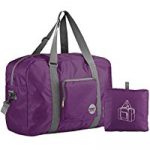 You can always pack an empty duffel bag, such as this travel duffel bag, in your checked suitcase. Then, when you come back from Japan, put your clothing and other non-breakable items in the duffel bag and use as your second checked bag. That way you can store all of your breakable or more easily damaged items in your checked suitcase. But again, you will pay individual for all checked baggage fees on your domestic flight home from Houston so check your airline to be sure of what those are on domestic flights within the U.S.
You can always pack an empty duffel bag, such as this travel duffel bag, in your checked suitcase. Then, when you come back from Japan, put your clothing and other non-breakable items in the duffel bag and use as your second checked bag. That way you can store all of your breakable or more easily damaged items in your checked suitcase. But again, you will pay individual for all checked baggage fees on your domestic flight home from Houston so check your airline to be sure of what those are on domestic flights within the U.S.
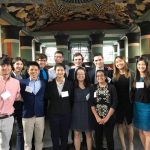
How Much and What Type of Clothing To Bring?
Pack enough clothing for 10 – 14 days and plan to do laundry regularly while you are in Japan. Try to use the 5-4-3-2-1 packing or another packing light system (though you may need to adapt this for a longer-term stay abroad).
Nice Casual Attire: On a day to day basis, you can wear casual attire though you should bring your ‘nice’ casual clothes. You will need at least one more formal outfit to present in at the Mid-Program Meeting, Closing Session in Tokyo, and Final Poster Session at Rice. This does not need to be a full suit, but should be business casual/office attire.
Japan is much more formal and people dress much more nicely than a ‘typical’ college student in the U.S. People also tend to dress more modestly in Japan and shorts are not commonly worn on a day-to-day basis. People tend to wear shorts and flip-flops only to the beach/hiking/sight-seeing places on the weekend or nice/fashionable shorts as part of a ‘going out’ outfit at night. Women should avoid tank-tops and bare shoulders or tops that show cleavage in the workplace/lab. Carrying a light-weight cardigan/sweater in your bag is helpful as you can put this on indoors and take it off outdoors as needed. Atheleisure is not ‘thing’ in Japan and leggings are considered more like stocking in Japan so they are only worn underneath long tunic length tops or under skirts or shorts. For more on this, see our Fashion in Japan section under the Life in Japan Resources page. In particular, this video on What Not to Wear in Japan may be helpful.
Ask your Alumni Mentor for advice based on their experience last summer. Here are some general guidelines:
5-10 Tops
- Best to bring tops that can be worn casually and/or dressed up
- Polo shirts rather than button up shirts are more useful for men
- Due to safety, you may need to wear long sleeves when working in your research lab and/or it may be quite cold if you are working in a clean room.
4-7 Bottoms
- Remember, shorts are not as commonly worn in Japan! You can wear these at most sight-seeing locations (not shrines/temples) but, due to safety, you will likely need to wear long pants in the research lab.
- Bring light-weight pants! It will be too hot/humid to wear heavyweight jeans. Think linen pants, quick-dry travel/hiking pants, and lighter weight/thin jeans and chinos/khakis.
3 – 5 Pairs of Shoes
- Be sure all shoes you bring fit well and are well broken in!
- Comfortable travel flats/shoes that are dark in color and can be dressed up/down may be most useful.
- You will need one pair of nice shoes you can wear for presentations but be sure you can comfortably stand in these for 1 – 2 hours! High heels are not recommended.
- Your shoes will get wet since it is the rainy season (tsuyu) for much of the summer! It will also be very hot/humid in Japan so your feet will likely get sweaty.
- Flip-flops are not commonly worn, but walking sandals can be worn outside of the research lab.
- It’s also helpful to carry some band-aids, particularly blister band-aids, in your backpack/purse to use in case you do get blisters from walking/sweating.
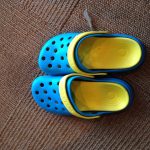 If you wear a large size of shoes, you will likley not be able to find shoes in Japan. In the research lab/office you will likely take off your outdoor shoes and need to wear office/lab slippers. These are usually provided by the lab but if you wear a large shoe size they may not fit. Bring your own pair of new/clean clogs or slide/slipper type sandals that you can wear in the lab so they fit.
If you wear a large size of shoes, you will likley not be able to find shoes in Japan. In the research lab/office you will likely take off your outdoor shoes and need to wear office/lab slippers. These are usually provided by the lab but if you wear a large shoe size they may not fit. Bring your own pair of new/clean clogs or slide/slipper type sandals that you can wear in the lab so they fit.
1 – 3 Lightweight Jacket/Sweaters
- It will be hot and humid most of the time in Japan but you may want a light-weight packable jacket or rain coat to use in Japan (e.g. Mt. Fuji Lakes trip during orientation will be cooler weather)
- Light-weight sweaters/cardigans that you can take on/off as needed may also be helpful
~ 3 Dresses (for women)
- Keep in mind that even in summer most Japanese women keep their shoulders covered.
- Wear a cardigan/light-weight sweater over any sleeveless dresses as needed.
1 Swimsuit
- There is a pool at the hotel in Houston and some students have gone to the beach on free weekends in Japan.
Socks, Underclothes & Pajamas
- Bring enough for one week and wash/dry regularly to prevent acne (you will sweat a lot due to heat/humidity). Choose seamless, light-weight, quick-dry options whenever possible.
- Socks: choose light-weight/quick-dry options and odor preventing options as your feet will sweat more due to the heat and humidity.
- Japan has lots of great sock shops! If your feet are not too large, these make great souvenirs and accessories to buy while you are in Japan. Check out the Fabulous World of Japanese socks!
- Compression socks may be helpful on long international flight or when doing a lot of walking/hiking
- If wearing ballet-style flat or slip-on shoes low-profile socks should be worn or you may get blisters more easily due to sweaty feet.
- 7 Travel Socks Your Feet Will Love
- Underwear
- Bras: Women may want to consider bralette/exercise bra styleswhich are easier to hand wash and hang dry than heavily padded styles
- You will want to wear a bralette/jogging bra and short/lightweight shorts under your kimono in Kyoto for the Mid-Program Meeting
- 9 Expert Tips n Choosing the Best Bras for Travel
Accessories
- If you wear glasses or contacts, bring an extra pair of back-up glasses in case your primary pair get lost or stolen.
- Leave expensive jewelry and watches at home. Only bring pieces with you to Japan you can wear every day and that you would not be too upset about getting lost or broken.
- Use accessories to jazz up your capsule wardrobe outfits but don’t bring too many. Bags/purses, belts, jewelry, and other accessories can be easily bought in Japan and might make good souvenirs too!
There is a coin laundromat near the Sanuki Club hotel in Tokyo and most dormitories/apartments will have laundry facilities available. It will be very hot and humid for most of the time you are in Japan so you will want to do laundry regularly as your clothes will likely get very sweaty. You can buy laundry detergent at the 100¥ Store, konbini (convenience store), grocery store, or pharmacies in Japan and here is a helpful guide to doing laundry in Japan (as the washers/dryers will have kanji not English instructions!). If you have sensitive skin or a strong preference for a certain type of laundry detergent or dryer sheets, bring the detergent pods in a plastic bag or small packets of detergent with you to Japan. Dryer sheets are also not as commonly used in Japan, so bring some with you to Japan if you like to use these. While this may take up a little room in your luggage, you will have extra room for souvenirs on your way back home.
Also, most places in Japan will have all-in-one washer/dryer units. While these work, they may not fully dry your clothes. So, it can be helpful to purchase a drying hanger/line from a 100¥ Store (Dollar Store) in Japan to use to hang up your almost dry/damp clothes in your dorm room/apartment. It’s best to purchase this after you arrive to your research internship housing and know exactly what you need for your room’s set-up.
Hotels in Japan, including at the Sanuki Club during the first three weeks in Tokyo, will provide a bath towel and smaller hand towel (no washcloth). Once you get to your research internship housing you will need to provide your own towel and hand towel. Since it is very hot and humid in Japan, we recommend bringing a camping/travel towels. If you bring a large, terrycloth towel it will likely take a very long time to dry and your room will end up smelling damp/musty/moldy.
If linens/bedding are not provided by your research internship housing you may be able to rent bedding or purchase inexpensive bedding from a nearby store. Whether you need to rent/purchase your own bedding depends on your individual housing so you should wait to see the detailed information on your research internship housing is sent to you. If your Alumni Mentor stayed in the same housing/dormitory that you will stay in, ask them for advice. It might be easiest to buy bedding in Japan as the size of a single bed in Japan is short/smaller than a typical twin bed in the U.S.
You can buy all types of toiletries, hair/face products, make-up, and medications/first-aid items in Japan but sometimes it is nice to bring the brands/types you prefer using with you abroad. Particularly if you have very sensitive skin or if you have a hair type that is different from the typical Japanese/Asian type of straight hair – you may have difficulty finding products that work well for you in Japan. They exist, but the brand names will be different and product labels will be in Japanese so it may be hard to find exactly what you are looking for. While these may take up some room in your checked suitcase, as you use them over the course of the summer you will make rooms for souvenirs.
If you don’t have a strong preference and are willing to try Japanese brands, just bring travel size toiletries and buy more as needed over the course of the summer. You can easily find these at 100¥ Store (Dollar Stores), konbinis (convenience stores), pharmacies, or discount department stores like Don Quijote.
- Shampoo/Conditioner/Hair Products
- Body Soap
- Face Soap/Moisturizer/Make-up
- It will be hot and humid so oil-control formulas may be best
- Anti-perspirant or Deodorant
- Note: Anti-perspirant is not easy to find in Japan. Bring enough with you from the U.S. if you prefer to use this!
- Acne Medication for Face & Body/Back
- You will sweat more due to the heat and humidity so may break out more
- Contact Solution for at least 1 – 2 Weeks
- You can easily buy more at konbinis (convenience stores) or pharmacies in Japan
- Feminine Hygiene Produces for Women
- Tampons/Pads as needed for duration of summer
- You can buy these at pharmacies in Japan but most women prefer to use their favorite brand/type.
- Birth Control/Condoms/Sexual Heath
- If there is any chance you may be sexually active while abroad be prepared and stay safe!
You should also prepare a small, travel medical kit. You can find headache, body ache, cold, and stomach medicine in pharmacies in Japan but the brand names will be different and the labels will all be in Japanese. When you are not feeling well, it can be much easier to have some basic OTC medications in your room that you can easily take as needed. Keep all OTC medications you bring in their original packaging. Just be sure you aren’t bringing any medications into Japan that may be illegal.
-
- Headache/Body Ache Medication
- The To Go kind can be helpful to carry in your day bag.
- Cold/Allergy Medication and/or Nasal Sprays
- Be sure it does not contain psudoephedrine
- Ask your pharmacist or doctor for recommendations
- Pills may be more convenient to travel with than syrups
- You can buy cough drops at konbinis (convenience stores) in Japan
- Stomach Medicine for both Diarrhea and Constipation
- Petpo Bismol To Go can be helpful to carry in your bag
- Motion Sickness/Altitude Sickness Medication
- If this applies to you, be sure you are prepared! You may get motion sickness on buses, trains, or subways initially when you arrive in Japan.
- Neosporian
- The To-Go Kind is handy to carry in your bag)
- Band-Aids, Gauze, and First-Aid Tape
- Blister band-aids are useful to carry in your day bag
- Larger gauze and tape can be helpful for slightly larger injuries
- Sunscreen
- The sizes of sunscreen will be smaller in Japan but higher quality. If you use a lot of sunscreen, or have very sensitive skin, you may want to bring your preferred brand from the U.S.
- Many foreigners stock up on their favorite Japanese brands while abroad.
- They even have combined sunscreen + bug repellent that you can find at many konbinis (convenience stores) or pharmacies!
- Mosquito Spray and Itch Cream
- Hot and Humid weather with lots of rain = mosquitos!
- Mosquito repellent wipes are easier to travel with than spray. Less likely to leak in your bag/suitcase.
- Rash/itch cream may be helpful too as hot + humid weather = heat rash!
- Small Scissors & Tweezer & Small Roll of Duct Tape
- Helpful to have to open packages and make small repairs as needed
- Headache/Body Ache Medication
 Gifts for Host Lab & Japan-based Program Staff
Gifts for Host Lab & Japan-based Program Staff
Don’t forget to leave room in your luggage to bring gifts from your hometown or home university for your Japanese host lab and some of the Japan-based members of the Nakatnai Foundation or others that you may meet along your way in Japan. Ask your alumni mentor for advice or see some of the Alumni Packing tips below. Gifts (omiyage) are key parts of the culture in Japan and something you need to be prepared for. Omiyage are typically boxed treats/food items that can be easily shared are best as most Japanese homes are quite small and don’t have room for lots of souvenirs. For more see Omiyage in Japan on our Life in Japan resources page.
Nice Gifts: Bring at least one nice gift each for your host professor, mentor/s, and your lab secretary/ies as they will have done a lot of work to prepare for and mentor you over the course of the summer. Mugs/glasses, a hat, or other souvenir (think nice pen, keychain or stuffed toy) from your campus bookstore with your university logo might be good options or things that are reflective of your hometown or home state. You may also want to give a nicer gift to 1 or 2 of the Nakatani Foundation staff.
Boxed Treats: For your research lab group, bring a boxed treat/snack box of something reflective of your hometown or home state or simply a type of snack/treat you love yourself. Ideally, these should be packaged in small, individually wrapped portions so they can be left out on a table and eaten over time. You may need to explain to your host lab what the treat is as they may be hesitant to try something they haven’t eaten before. Try to bring things that are not too sweet as many American candies are too sweet for Japanese taste. For example, dark chocolate may be better than milk chocolate. Also, if you bring chocolate, hand carry it in your carry-on bag as it might melt in your checked luggage while waiting to be loaded onto or off of the plane. Not sure how many people are in your host lab? Look for a ‘People’ page or ‘Members’ page on your lab website which will usually have a photo or ask your Alumni Mentor or research mentor if you have already been introduced to them.
Smaller Gifts: Bring a supply of smaller gift items you can hand out to others along the way over the course of the summer. From the Nakatani RIES Japanese Fellows, to your dormitory manager/front desk person, to the Sanuki Club staff, and beyond – you never know who you might meet and become friends with and want to thank at the end of the summer. Some good options include postcards or small pins/pens from your home university or home state or small packages of your favorite snacks/treats.
Thank you Notes: Don’t underestimate the power and importance/value of a hand-written thank-you note. Carry a box of blank thank you notes with you to Japan so you can write personalized messages to people at the end of the summer and along the way. You may be able to find some blank thank you note cards in your campus bookstore or ones with photos of your hometown/home state on them which would make them extra special. You can also print off small size copies of photos of you together with your host professors or research group by using the coin copiers in the konbinis (convenience stores). This way, you can include a photo as a memento with your thank-you card too.
Alumni Packing Tips
- “Pack light! I packed one suitcase and came back with two. Keep in mind that you might be bringing quite a bit back with you in the form of gifts and souvenirs.”
- “Only pack things that you really need. You’ll want as much space as possible in your luggage if you want to bring back souvenirs. Remember that you can find a lot of essential items for very cheap in Japan, like in 100 yen stores.”
- “Make sure you either have ample room in your suitcase or pack another empty duffel bag in your suitcase, because you will buy a lot of gifts to bring back!”
- “I recommend packing decently lightly (especially clothes-wise) as you will definitely want to buy a lot of interesting gifts from Japan (but make sure you pack gifts from America for ALL of your Japanese senseis, secretary, and mentor as well as random trinkets to thank people you meet on the way). I personally brought chocolates for the group lab gift, but if you do so, only buy dark chocolate. American goods are often too sweet for Japanese taste. To be on the safe side, it might be good to bring something salty. Whatever you choose to bring as a lab gift, make sure that each item is packaged individually and not too messy.”
- Program Tip: Don’t be worried about all the room that the gifts you bring to Japan are taking up in your suitcase as this means you will just have extra space for packing the souvenirs and gifts you buy in Japan to bring back with you at the end of the summer.
- “I would recommend NOT bringing a huge number of clothes or shoes…they are a hassle to haul around, and if you need more shirts Tokyo is literally heaving with awesome fashion (including the most incredible sneaker stores in the world).”
- “Definitely pack a duffel bag or smaller suitcase in a larger suitcase. I did this and managed to bring back all of my souvenirs to the US, as you will have a lot.”
- “Bring a bag to carry with you as you go around Japan such as a messenger bag or buy a small backpack as soon as you get there.”
- “Anywhere south of Sendai (e.g. Tokyo, Chiba, Osaka, Kyoto, Okinawa), Japan is very hot and humid during the summer, so bring cool, light clothes and very comfortable shoes because you will walk a lot during commutes.”
- ” Use sunscreen a lot, and take light clothing like t-shirts. Pack really light if you can, say a couple pairs of pants, a pair of shorts or two, and various shirts. You’ll be able to wash all of your clothes in the laundry room for free, and it’s always nice to have a smaller bag than most when you have to lug those things around. Besides, it leaves more room for souvenirs, and you will have LOTS of souvenirs.”
- Toiletries & Personal Care
- “If you use a certain type of deodorant or anti-persistent you may want to bring enough with you for the summer. The brands you find in Japan will be different than in the U.S. and might not work as well for you.” Anti-antiperspirant is particularly hard to find.
- “The toiletries in Japan are slightly different in one way or another so if you have a “special” shampoo or shaving cream and don’t want to hassle with such things buy them in the US and bring them with you.” (Also applies to feminine care products like tampons and pads.)
- “It’s also a good idea to bring extra toiletries along, as the Japanese versions can be a lot less effective than their American counterparts (I would stress bringing extra deodorant, sunblock, and any sort of specialty product you might need).”
- Technology
- “Pack a lightweight computer. I brought my huge gaming laptop to Japan thinking that I was going to play online video games with my friends in the US. The time difference and poor Internet connection quality made that impossible. The laptop ended up making my pack super heavy and it took up way too much space.”
- “Most dormitories will have lan but not wifi so bring a LAN cord (or plan to buy one there) and wireless router so you can have wifi in your room just in case.” (Or, if you have a Mac, learn how to turn it into a wireless hotspot).
- If you already have T-Mobile or are thinking about switching, you are in luck! T-mobile offers free data and texting while you are abroad in many countries including Japan. You’ll still pay a international rate for any incoming or outgoing call and the data speed may not be very high but its really helpful to be able to look something up while you are traveling in Japan and to stay in contact with your family/friends via text. (You’ll still have to get a Japanese cell phone though too to use in case of emergency and so you have a JP phone number that your lab mates and professors can call you at).
- Miscellaneous
- “And umbrellas…leave the umbrellas at home, they’re much nicer in Japan and cheap too! For Osaka, it will be hot, and it may be really wet.”
- “Don’t bother packing a lot of small items. There are many 100 yen shops (like dollar stores but with much more) where you can buy whatever you need. For example, don’t bring a mug or a plate, you can buy each for just about a dollar.”
The websites below also offer helpful tips for students on packing to study abroad, in Japan or elsewhere!
The Art of Light and Precise Packing: What to Bring When Studying Abroad
7 Things you Should know before you Study Abroad in Japan
Alumni Pre-Departure Tips
The tips below have been shared by students who have previously conducted a science & engineering research internship in Japan. Not all of these tips will apply to all fellows, but they should give you some insight into things that alumni wish they had done prior to departure.
- “For Pre-Departure study as much Japanese as you can and as much as you can about Japan in general by looking at travel guides for example. Don’t wait until the last minute to pack and bring your best clothes. Try and start reading the science papers for your project.”
- “Study hiragana/katakana! Carefully study the papers the host laboratory sends and look into other projects being conducted at the host laboratory. Pack omiyage for the first day in the host laboratory as well as parting gifts.”
- “Establish a good line of contact with your lab early. That way, if they send you papers or journals to better understand your research project, you will have more time to process all the information. Look on your host lab’s website to see if they have any recent lab photos. This way you can gauge how much omiyage to buy for your lab. Now is also a good time to determine whether or not you want to buy a JR pass.”
- “Plan out some sights you might like to see ahead of time in Tokyo and your host city. That way you won’t waste potential sight-seeing time deciding on what to do. The japan-guide.com website is excellent for making a list of great things to see.”
- “Plan what you want to do in Japan ahead of time. Try to get a general idea of the ‘must-sees’ so you can make sure to plan to see them all.:
- “I think the guidebook provides a fairly complete resource in terms of suggestions for packing and general preparation. I would highly recommend the website japanguide.com or picking up a guidebook on Japan such as LonelyPlanet to start thinking of places to visit.”
- “A JR pass is worth it if you plan to take a few long trips on the shinkansen if not then you’ll be better off just buying a ticket for a trip or two.”
- “The biggest mistake I made was not studying my kana enough. It is so helpful to be able to read at a basic level after the 3 week orientation, and the best way to do that is study study study before you leave.”
- “Study Japanese. I know this one is obvious, but still, you need to do it. I would highly recommend learning some of the most useful Kanji: for example, the Kanji for Tokyo, your host city, and any cities you plan to travel to. Also learn the Kanji for the cardinal directions. Of course the train/subway message boards will display in English, eventually, it can mean the difference between making the train, or missing the train because you were waiting for the message board to translate.”
- “Learn Hiragana & Katakana and as much Japanese as possible, especially if English isn’t spoken much in your lab. Come with an open mind for adventure and the unknown, it will be well rewarded in Japan!”
Hmm… notice a theme here about studying the kana and hiragana alphabets prior to departure? For more tips on studying Japanese check out our Japanese Language resources page.
